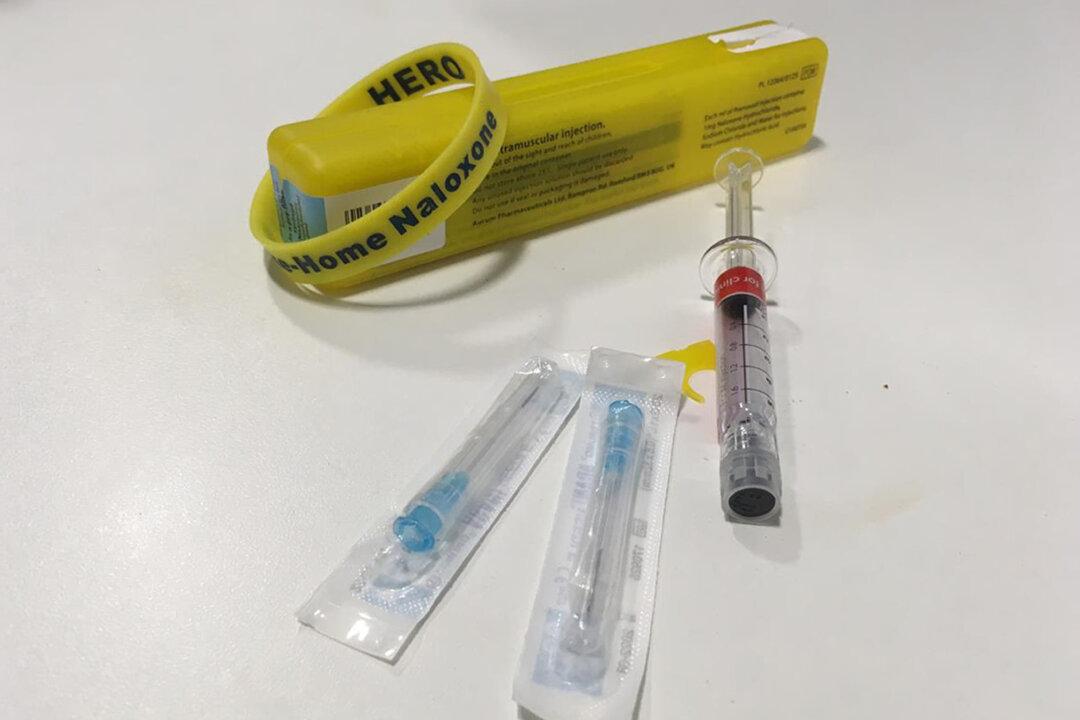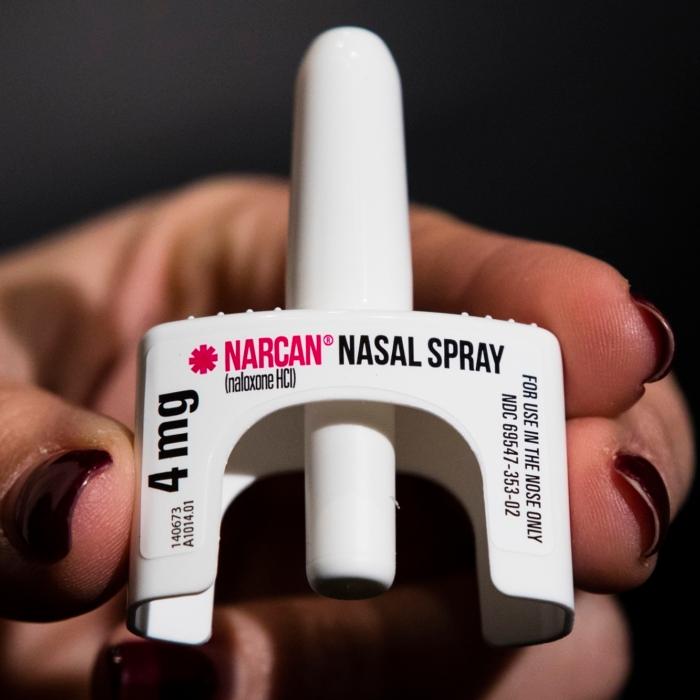The Association of Police and Crime Commissioners (APCC) has welcomed government plans to make the anti-overdose drug naloxone more widely available without a prescription.
Naloxone—which reverses breathing difficulties, which are a common symptom of an opioid overdose—can currently only be legally supplied without a prescription by a drug and alcohol treatment service.
But with 40 overdoses a week in Britain, the government has accepted there is a need for naloxone to be more widely available.
Among those who have been trained to use it are 400 prison officers working at a jail in Wales where several inmates have died of overdoses since the end of February.
The government said it planned to go further and update the legislation to allow naloxone to be given to the parents or friends of drug addicts.
The APCC’s addictions and substance misuse leads, David Sidwick and Joy Allen, have welcomed the government’s announcement, which was part of a 10-year plan announced this week to, “expand and improve the drug and alcohol treatment and recovery workforce.”
Ms. Allen, who is the police and crime commissioner in County Durham, said, “With around 40 deaths linked to opiate overdose every week in the UK, and growing concerns about the risk posed by synthetic opioids, we strongly support the government’s decision to expand the availability of naloxone for vulnerable people.”
‘Naxolone is Always a Last Resort’
Mr. Sidwick, who is police and crime commissioner in Dorset, said, “While we strongly support these proposals, the use of naloxone is always a last resort.”“We also need to redouble our efforts to prevent people from using drugs in the first place, and to get people with opiate addictions into evidence-based treatment that supports them to come off drugs and get their lives back on track,” he added.
Health Secretary Victoria Atkins said, “Opioid addiction can ruin lives and is responsible for the largest proportion of drug-related deaths across the UK.”
“We are working hard to reduce those numbers by expanding access to naloxone to save the lives of the most vulnerable,” she added.
This week she said: “I heard first-hand what a lifesaving intervention naloxone is. Widening access to naloxone is key to reducing the number of lives lost to overdose.”
Justice Minister Edward Argar told the House of Commons on Monday that 400 staff members at Parc prison in South Wales have been trained to use naxolone following a spate of drug-related deaths.
Nine people have died at HMP Parc since the end of February, but Mr. Argar told MPs: “It is important to note that these deaths are not all drug-related. However, four have so far been linked to substance misuse, with another potentially so.”
South Wales Police said four of those who died at HMP Parc were believed to have taken the drug nitazenes, a synthetic opioid which can be many times stronger than heroin.
Mr. Argar told MPs the Prison Service and G4S, the private operator of HMP Parc, were working closely to prevent drugs entering the prison, including through, “extensive searches of prisoners and staff.”
But the Labour MP for Cynon Valley, Beth Winter, (Cynon Valley) called for the government to step in and take over the management of HMP Parc, which she said was, “both under-staffed and the staff are inexperienced.”
Ms. Winter said, “Given the £400 million cost of the contract to G4S to run the prison, has he given consideration to the prison service stepping in to manage it as it has done with Birmingham prison?”
Mr. Argar rejected her suggestion and said, “In terms of the overall performance of Parc, I think it’s important to remember that while there are challenges that were addressed in the urgent question yesterday, Parc is a prison that is rated as performing well and a contract that is performing well.”







